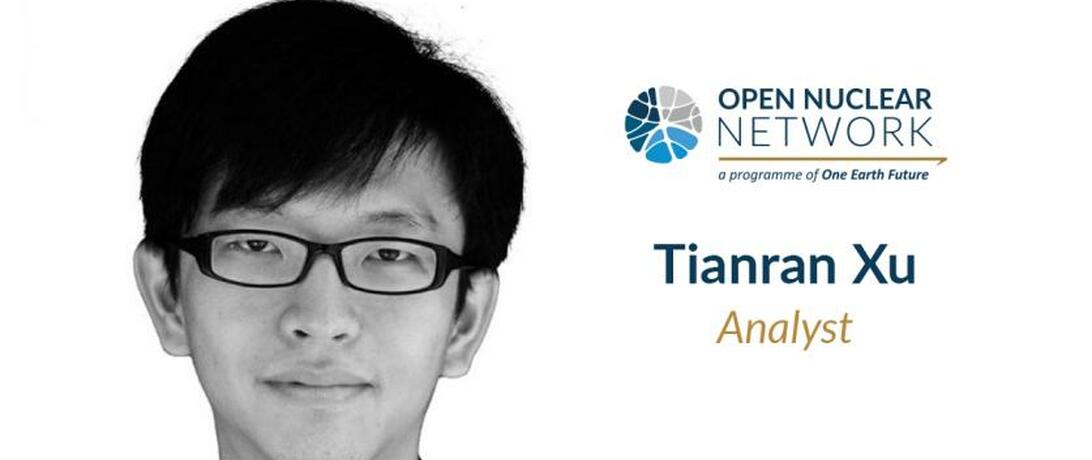
I study missiles and nuclear delivery systems to better understand capabilities and ways to build strong, verifiable agreement and reduce the risk of nuclear weapons systems.
Tell me about yourself. Your background.
My name is Tianran Xu and I'm from Beijing. I received my degree in the German language at Xi'an International Studies University. After graduation I became a full-time journalist, working first as a journalist and editor with the Global Times English Edition, which is a major English-language newspaper in China. After that, I moved on to foreign news organizations in Beijing. My beat covered topics like defense and technology. I speak Chinese, English and German.
What is your role at ONN?
I study missiles and nuclear delivery systems to better understand capabilities and ways to build strong, verifiable agreement and reduce the risk of nuclear weapons systems. I use publicly available information, including images, videos, and texts, to generate analysis on the development of weapons programs, the military activities of key players, and the associated risks of unintentional nuclear use.
You need to be knowledgeable in your beat and use information online to do this work. I've engaged in open source intelligence work for the past several years as my hobby. I will be writing similar essays for One Earth Future's (OEF) Open Nuclear Network (ONN) programme.
I also work with my other ONN colleagues to build-up Datayo. Datayo is a software platform developed by the ONN programme, which we use to analyse many kinds of open source information and talk about it with people around the world. I have my own dataset of pictures of road mobile missiles that I am preparing for the Datayo platform right now.
I also work collaboratively with the ONN team to do network mapping to try to find the best people for ONN's engagement network. The engagement network is an ambitious plan, through which we aim to identify key players in nuclear decision making, conduct research, and provide neutral, objective information as a means of reducing nuclear risk.
What does Open Source Intelligence mean to you?
Open Source Intelligence is using publicly available information and using analysis methods to draw conclusions about things that are important for our relative fields. In this case, nuclear risk reduction. We live in a highly digital environment, with heavy information flow. We as internet users and citizens gather tons of publicly available information and produce intelligence that can serve the greater good of the world we live in.
Why is Open Source Intelligence Important for the Global Community?
Risk reduction. ONN's current focus is on North Korea, but we plan to expand our scope.
For example, How can we help make sure that there is not a nuclear conflict in the Asian-Pacific region due to misunderstanding and miscalculation? For example, if in a conventional conflict, a party launched a mid- to long- range anti-ship ballistic missile, how can the other tell that the incoming missile is not nuclear-armed, but an anti-ship missile?
There are so many fields and possibilities we can explore.
Article Details
Published
Topic
Program
Content Type
News